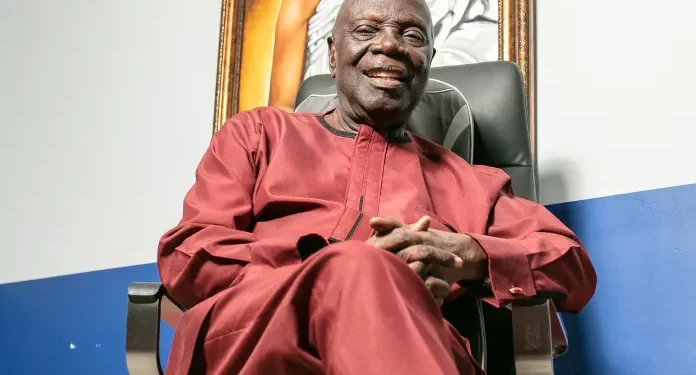Dr. Ishmael Yamson highlights technological lag and youth migration as key challenges for Africa
Dr. Ishmael E. Yamson, delivering the closing remarks at the Ishmael Yamson & Associates Business Roundtable on May 29, 2024, addressed significant concerns under the theme, “African Businesses Collaborating for Global Success.”
Dr. Yamson highlighted two primary issues: Africa’s lag in participating in the fourth industrial revolution and the disillusionment of African youth, leading to mass migration. These challenges are compounded by insufficient investment in research and development, low intra-continental trade, and bureaucratic barriers hindering business and economic integration.
Dr. Yamson cited troubling statistics, noting that no African country spends 1% of its GDP on research, innovation, and development.
He also pointed out that while tech hubs in Africa have grown, they remain concentrated in just a few countries. Additionally, he criticized the slow progress of the pan-African Intellectual Property Organisation, with Africa contributing only 0.5% of global patents in 2018.
Further, the Economic Commission for Africa’s recent report underscores the lack of macroeconomic convergence and slow ratification of critical protocols for the African Continental Free Trade Area.
Dr. Yamson also emphasized the detrimental effect of excessive visa requirements on business mobility, citing Aliko Dangote’s need for 34 visas to travel across Africa.
Speaking further at the Business Roundtable, Dr Yamson called for a strategic partnership between African governments and the private sector to spur economic growth, create jobs, and restore confidence in the continent.
Highlighting successes like Dangote’s industrial ventures and MTN’s telecommunications expansion, he argued that African businesses have the resources and potential to drive global success.
However, to realize this potential, Dr. Yamson urged the dismantling of trade barriers, reversing the brain drain, and fostering a collaborative environment where African governments and businesses work together.
He stressed the need for a paradigm shift towards broader strategic thinking to build a robust continental economy, ensuring political stability and social progress amidst threats to democracy and rising populism.
He concluded his remarks by advocating for a united effort to reimagine an Africa where cooperation between governments and businesses leads to prosperity and global competitiveness.








